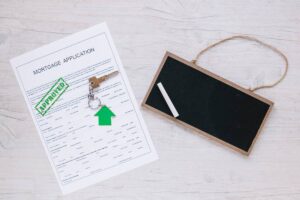Selling commercial property in the UK can be a lucrative opportunity, but it’s essential to understand how Value Added Tax (VAT) applies to these transactions. Whether you’re a seasoned investor or selling for the first time, staying informed about VAT regulations is key to ensuring compliance and maximising returns.
This comprehensive guide explores how VAT affects commercial property sales, from registration thresholds and standard tax rates to exemptions, documentation, and tax relief strategies.
Do You Need to Register for VAT When Selling Property?
In the UK, the current VAT registration point is £85,000. If your taxable turnover from the sale of goods and services, including property sales, exceeds this amount over 12 months, you’re not obligated to register for VAT. However, voluntary registration may be beneficial in specific scenarios.
Key points to consider:
- Properties newly constructed for commercial use are typically subject to VAT.
- Older properties may be VAT-exempt unless an “option to tax” has been applied.
- Voluntary registration allows you to reclaim VAT on associated costs, improving cash flow.
It’s essential to confirm whether VAT applies by consulting your estate agent or solicitor, reviewing land registry documents, and acquiring any relevant VAT election notices from HMRC.
What Is the Standard VAT Rate for Property Sales?
The normal VAT rate in the UK is currently 20%. This rate generally applies to:
- The sale of new commercial buildings
- Leases or rentals on certain commercial premises
Exceptions include:
- Residential property sales, which are typically VAT-exempt
- Specific building conversions or charitable uses which may qualify for reduced rates (5%) or zero rates
Always seek professional tax advice to stay up to date with VAT rules and any recent changes in legislation.
What is a VAT Election Notice?
A VAT election notice (also known as an “option to tax”) is a formal declaration submitted to HMRC stating that a specific commercial property is subject to VAT. This means:
- VAT is chargeable on the deal or lease of the property
- The owner can recover VAT paid on related expenses
A VAT election notice includes the following:
- Property owner details
- Property address and description
- Tax amounts due
- Applicable reliefs or exemptions
Both buyer and seller should agree to retain this documentation to ensure tax obligations are fulfilled correctly.
Are There Any Exceptions to VAT on Property Sales?
Yes, some exceptions exist depending on the use and status of the property:
- New Residential Builds: Typically exempt from VAT when sold for the first time.
- Previously Sold Homes: If a home has been sold previously or used commercially, VAT may apply.
- Property Transferred as a Going Concern (TOGC): This could be exempt from VAT if specific criteria are met.
Continually evaluate the specific circumstances of your property to determine if an exception applies.
The Property Buyers: Your Trusted Property Partner
At The Property Buyers, we specialise in helping someone and businesses navigate the complexities of property sales in the UK. Whether you’re selling a commercial unit, investing in real estate, or exploring tax relief options, our team is dedicated to providing dependable, transparent, and up-to-date guidance. Our in-depth market knowledge ensures you’re always one step ahead in the fast-moving world of property transactions.
Paying Capital Gains Tax on Property Sales
If the property you are selling is not your primary home, Capital Gains Tax (CGT) may apply. This tax is calculated based on the profit earned from the sale and must be reported to HMRC.
Key considerations for CGT:
- You are allowed an annual CGT exemption allowance.
- Gains above this threshold are taxed according to your income bracket.
- CGT applies to both individuals and companies.
Ensure accurate CGT calculations and timely payment to avoid penalties.
How to Document Property Sales for Tax Purposes
 Understand VAT rules before selling commercial property.
Understand VAT rules before selling commercial property.
Accurate record-keeping is essential to meet tax requirements. Ensure you:
- Retain all purchase and sale agreements
- Keep invoices, VAT receipts, and evidence of payment
- Maintain a detailed transaction log
These documents help prove the legitimacy of your business and allow for VAT reclaims and accurate tax reporting.
How to Check if a Property Is Elected for VAT
To confirm a property’s VAT status:
- Consult land registry documentation
- Check HMRC’s VAT election records
- Speak to your solicitor or estate agent
If a property has been opted for tax, VAT must be charged on the sale. This also means the seller can usually reclaim VAT on costs incurred.
Important notes:
- VAT election status applies to current and future sales
- A landlord who has opted to tax can claim back VAT on property-related expenses
- The VAT position should be disclosed before the sale completion
Summary of VAT Considerations When Selling Commercial Property
To summarise, here are the main takeaways when considering VAT on commercial property sales:
- Determine if the property is VAT-exempt or opted to tax
- Consider voluntary VAT registration to recover costs
- Document every transaction with clear records and receipts
- Understand when CGT applies and report earnings appropriately
Whether navigating VAT election notices, planning your next investment, or trying to minimise tax liabilities, the proper strategy and expert advice can make all the difference.


 Understand VAT rules before selling commercial property.
Understand VAT rules before selling commercial property.






